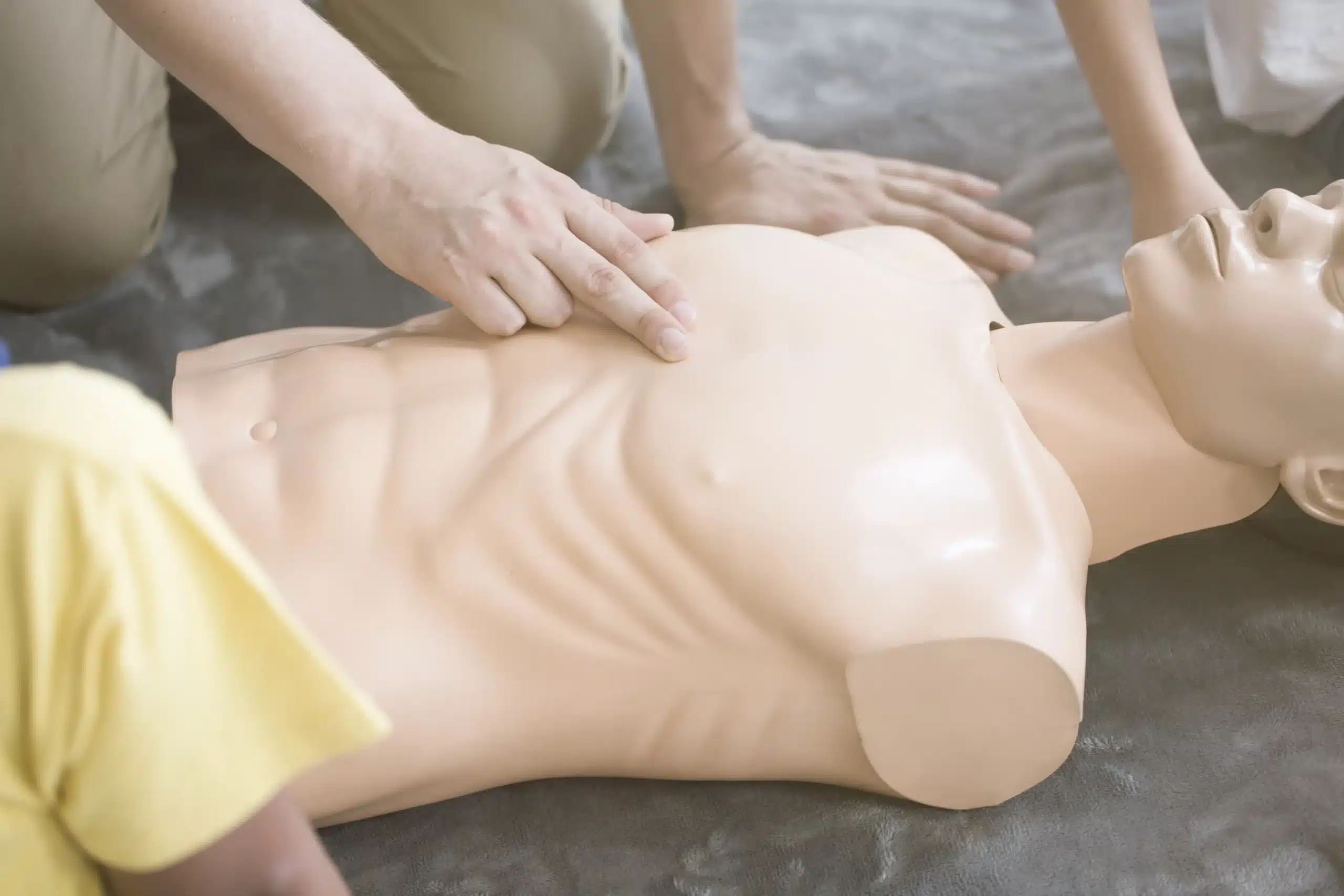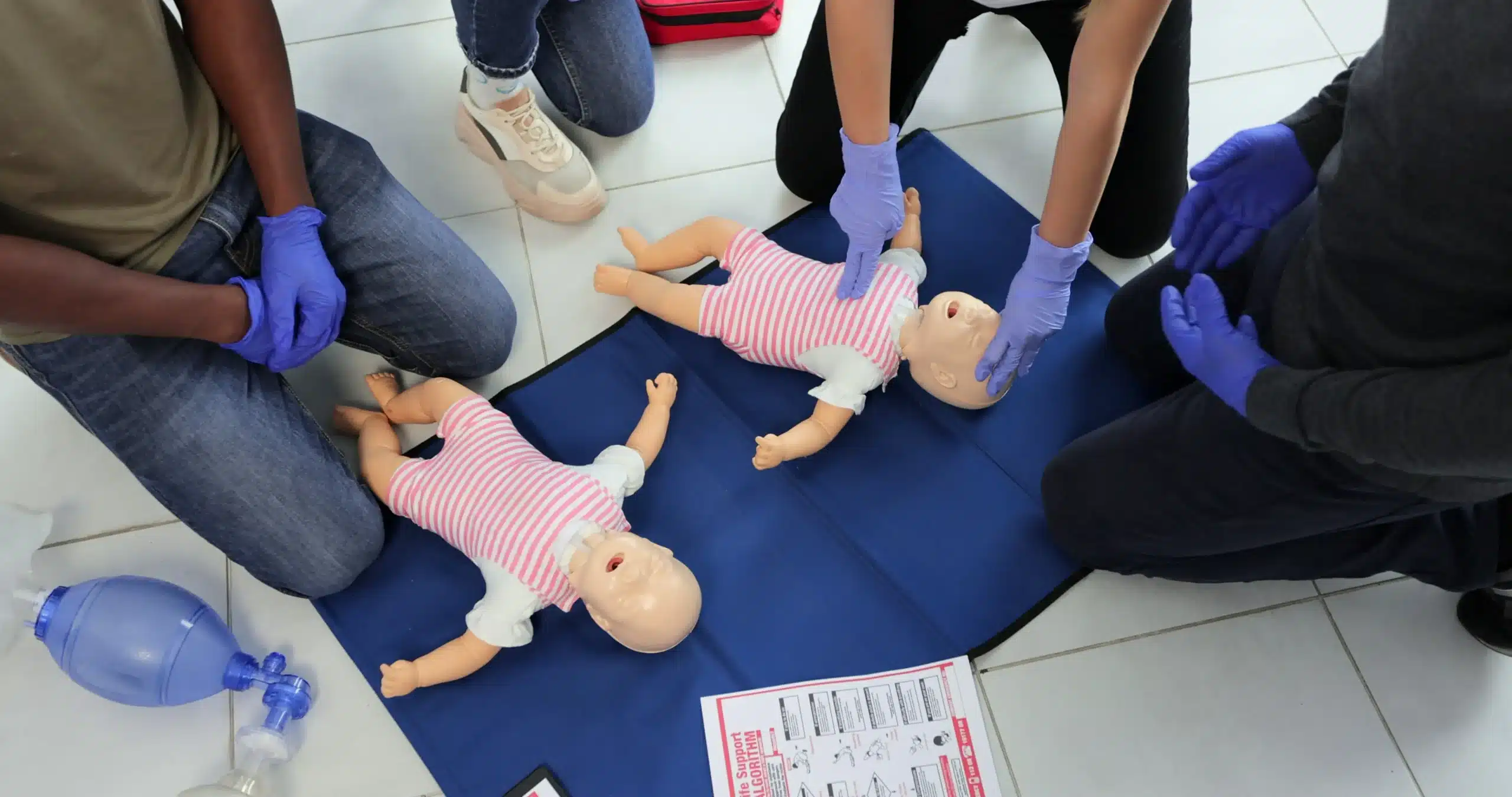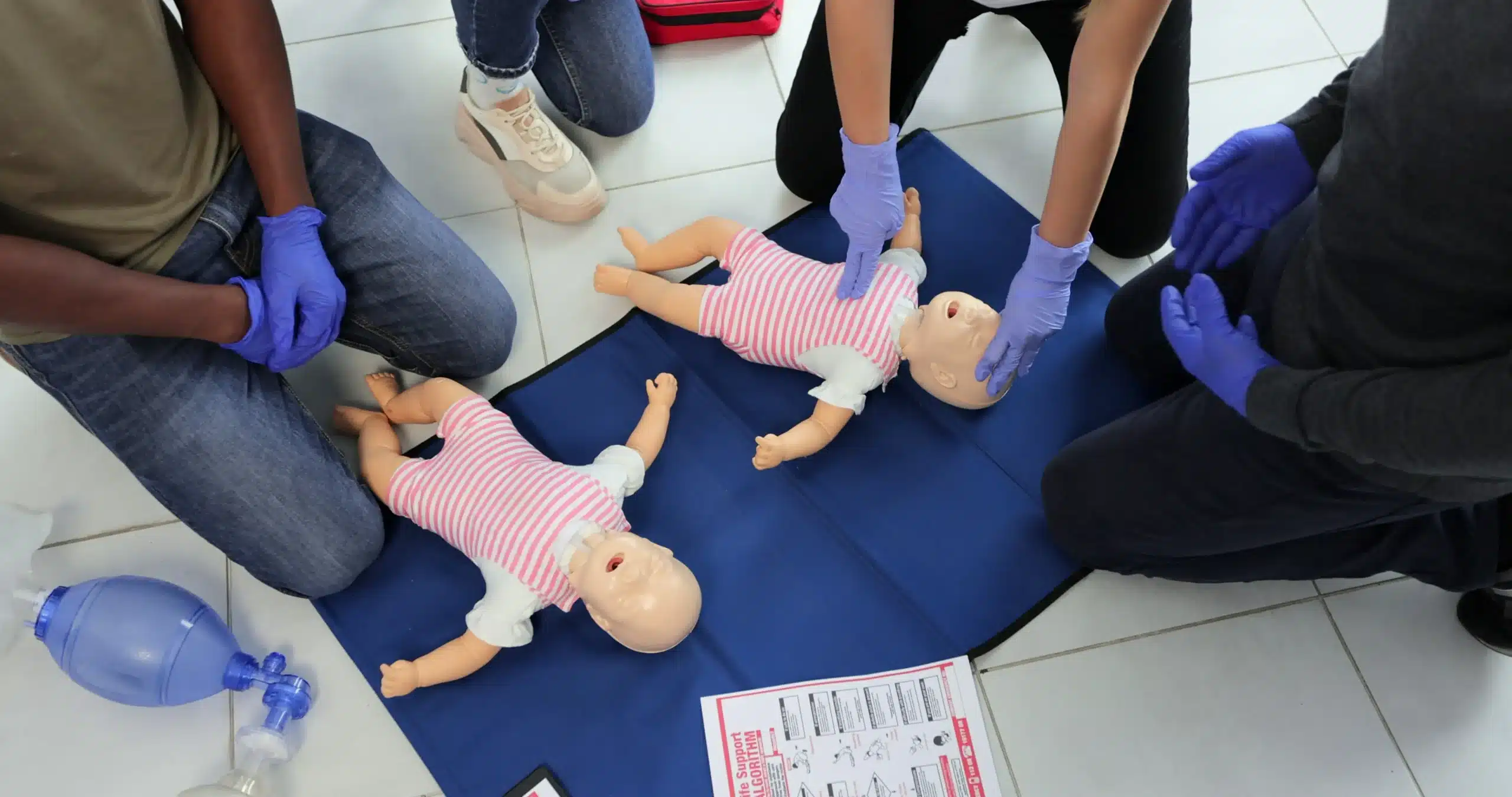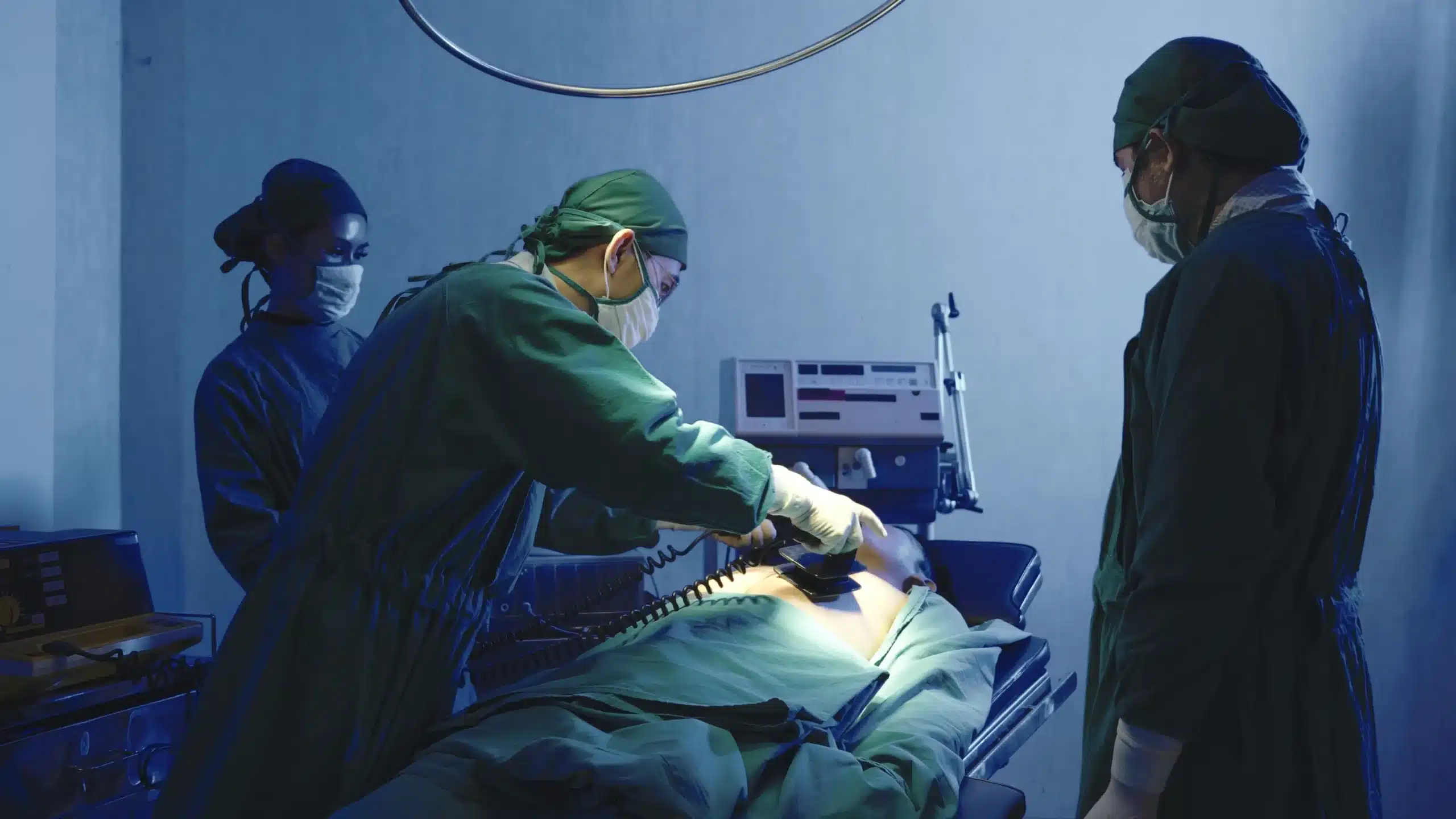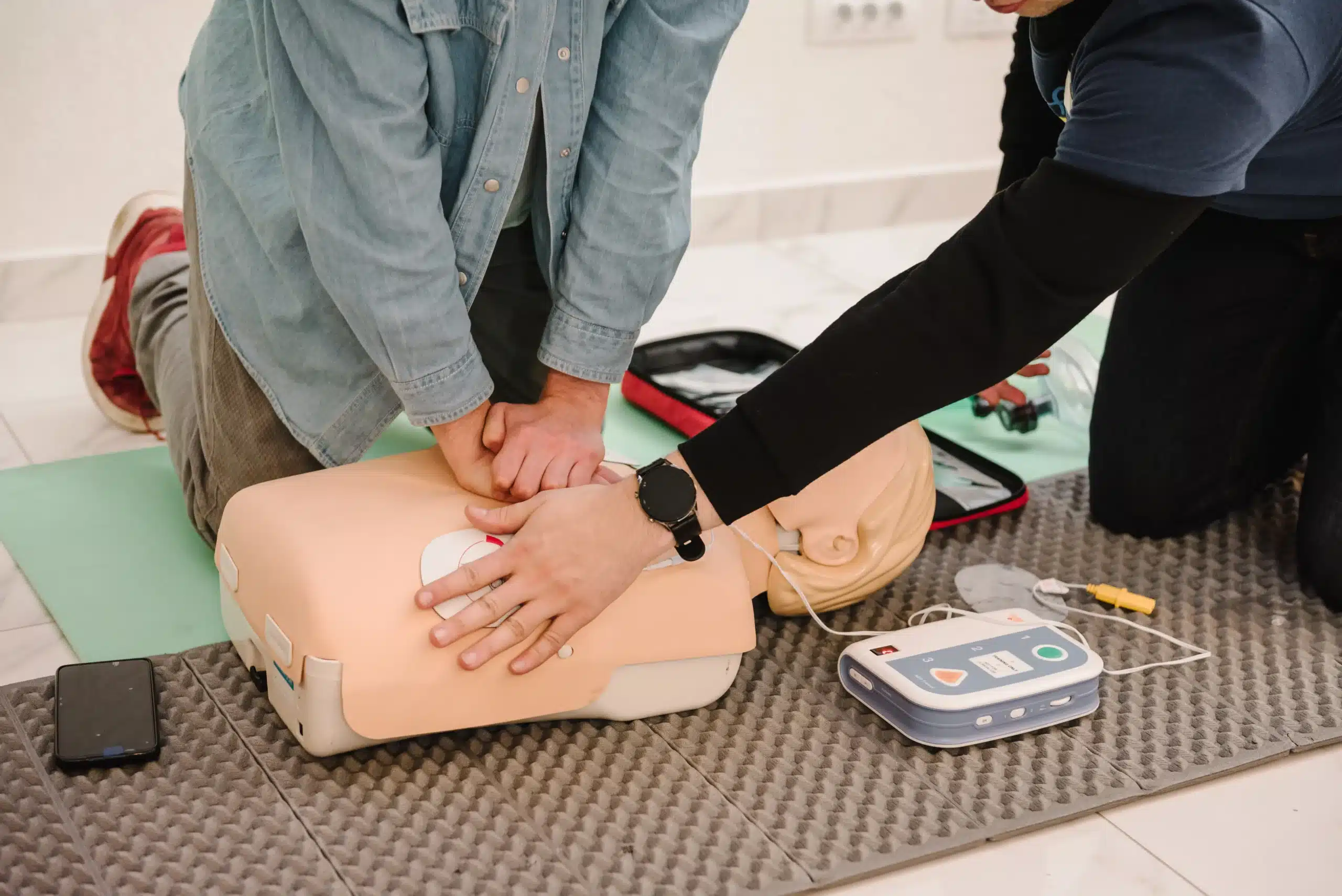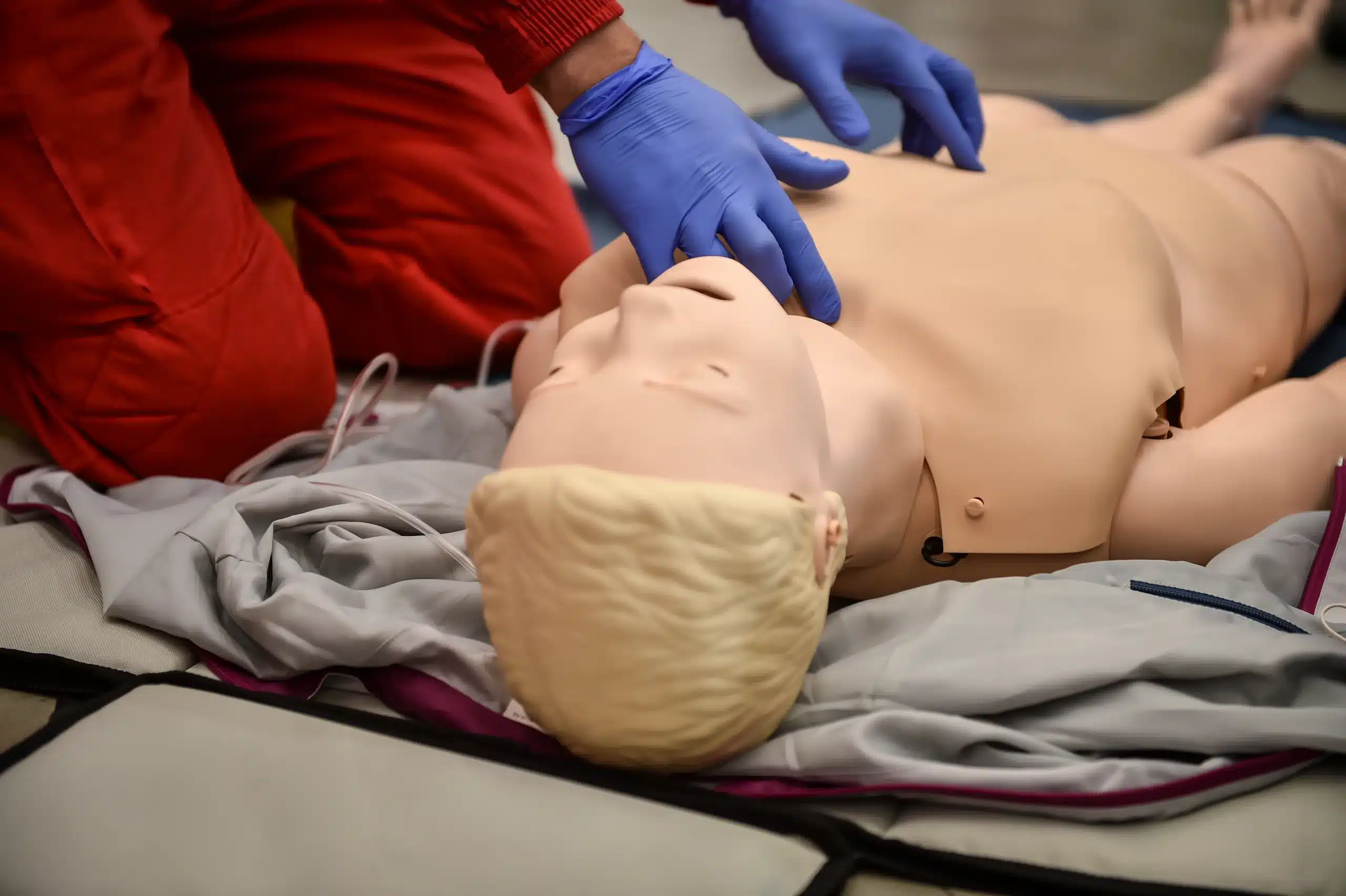Emergencies can happen anytime, anywhere. Being equipped with life-saving skills like Basic Life Support (BLS) can make you a vital resource in those critical moments. BLS training provides the knowledge and confidence to respond effectively to medical emergencies, encompassing techniques like CPR, using an AED, and maintaining a patient’s airway. This guide explores the ins and outs of BLS, including its importance, who should consider training, and how to find bls courses in Berkeley that meet your specific requirements. We’ll also address common misconceptions about BLS and offer practical tips for choosing the right course and excelling in your training.
Key Takeaways
- BLS certification provides essential life-saving skills: Learning CPR, how to use an AED, and recognizing medical emergencies makes you a valuable resource in various situations, from your workplace to your home.
- Choose the right BLS course format for your needs: Whether you prefer in-person instruction, online modules, or a blended learning approach, there’s a BLS course that fits your learning style and schedule. Consider factors like cost, location, and provider reputation when making your decision.
- Prepare for your BLS course by understanding the key components: Familiarize yourself with the skills you’ll learn, the hands-on practice involved, and the certification process. This preparation will help you get the most out of your training and confidently apply your new skills.
What is BLS?
BLS stands for Basic Life Support. It’s a critical level of medical care used in life-threatening emergencies like heart attacks, strokes, drownings, and other incidents that compromise breathing and heartbeat. BLS focuses on maintaining a patient’s airway, breathing, and circulation until more advanced medical help arrives. It goes beyond basic first aid, encompassing techniques like CPR, using an AED (automated external defibrillator), and relieving choking.
What is BLS and why is it important?
BLS certification equips you with essential life-saving skills. Learning CPR, how to use an AED, and recognizing medical emergencies makes you a valuable resource in various situations, from your workplace to your home. It empowers you to respond effectively during critical moments, potentially making a profound difference in someone’s life. Think of it as a crucial safety net, providing immediate support when it matters most. For those in Alameda, you can find comprehensive BLS courses that cover these vital skills.
Who needs BLS certification?
While anyone can benefit from BLS training, it’s often mandatory for healthcare professionals and first responders. Doctors, nurses, paramedics, EMTs, firefighters, and other medical personnel typically require BLS certification as a core qualification. Even if your specific job doesn’t mandate it, having BLS skills can significantly enhance your professional profile and open up new opportunities. Many workplaces, including schools, gyms, and corporate offices, also encourage or require employees to have BLS training to ensure a safer environment. If you’re in Alameda and looking for BLS certification, check out these courses.
Common misconceptions about BLS training
One common misconception is that BLS is the same as standard CPR/AED training. While CPR and AED use are key components of BLS, the training delves deeper, particularly for healthcare providers. It covers a broader range of skills, including advanced airway management and team dynamics during resuscitation. Another misconception is that online BLS courses are less effective than in-person classes. While hands-on practice is essential, many reputable online programs incorporate interactive simulations and require in-person skills checks to ensure competency. The American Red Cross offers a variety of CPR and BLS courses that emphasize hands-on learning. Choosing the right course format depends on your learning style and schedule.
Find Top BLS Course Providers in Berkeley
Finding the right BLS course provider is an important step in your certification journey. Here are a few reputable options to explore in Berkeley:
Safety Training Seminars
Safety Training Seminars offers American Heart Association-certified courses in CPR, BLS, ACLS, and PALS right here in Berkeley. They prioritize high-quality training to equip participants with the skills to handle real-life emergencies. For those also looking for other certifications, they also offer EMSA Child Care Health & Safety training. Check out their website for more information on course schedules and registration. They also have a low price guarantee for their courses.
Berkeley CPR Classes
Berkeley CPR Classes provides a range of American Heart Association-certified BLS courses, including convenient renewal options. They focus on making training accessible, offering discount group classes—a great option for community members or organizations. Their website offers a comprehensive guide to BLS certification in Berkeley.
American Red Cross
The American Red Cross is a well-known provider of BLS certification, offering both in-person and online courses. This flexibility allows you to choose the learning method that best suits your schedule and preferences. Visit their website to explore course options and find a class near you.
American Heart Association
While the American Heart Association doesn’t directly conduct classes, they set the standards for CPR and BLS training. Understanding their guidelines can help you choose a certified course that meets the highest quality standards for life-saving techniques. Their website is a valuable resource for information on BLS.
Bay Area CPR
Bay Area CPR offers a comprehensive selection of American Heart Association (AHA) certified courses, including BLS, ACLS, and PALS. Their commitment to quality training makes them a solid option for those seeking certification in Berkeley. You can find more details about their courses and schedules on their website.
Compare Course Formats, Duration, and Pricing
When choosing a BLS course, consider the format, duration, and cost to find the best fit for your schedule and budget. Luckily, there’s plenty of flexibility in how you can get certified.
In-person, online, and blended learning options
BLS certification courses come in various formats. You can choose in-person classes for hands-on learning and direct interaction with an instructor. If your schedule is tight, online modules offer a self-paced alternative, letting you complete the coursework when it’s convenient. Blended learning combines online coursework with in-person skills practice and testing. This approach provides the flexibility of online learning with the advantages of hands-on training. The American Heart Association recognizes these different learning pathways, ensuring quality training regardless of format.
Typical course duration and scheduling flexibility
BLS course duration depends on the format and provider. In-person classes typically take a few hours, often scheduled on evenings or weekends. Online modules offer more flexibility, allowing you to finish at your own pace, usually within a few days or weeks. Blended learning programs combine online coursework with a shorter in-person skills session. Many providers, including Safety Training Seminars, offer flexible scheduling. Check with specific providers for course schedules and availability. Most BLS renewal courses cover the training materials, skills testing, and certification card processing efficiently.
Cost breakdown and discount opportunities
The cost of a BLS course varies based on format, provider, and location. In-person and blended learning courses typically include training materials, equipment usage, instructor fees, and certification card processing. Online courses may have a separate fee structure, sometimes at a lower price. Look for providers offering group discounts or package deals, especially if enrolling with others. Safety Training Seminars are known for competitive pricing. Compare prices and ask about discounts before enrolling. Check if your employer offers reimbursement for BLS training, which can help offset the cost.
Enroll in a BLS Course
Now that you understand the importance of BLS certification and have explored different course providers, let’s discuss how to enroll in a course that fits your needs.
Age and Prerequisite Considerations
Most BLS courses are open to anyone interested in learning these lifesaving skills. While there aren’t strict age limits, some programs, like Patient Care Technician programs, require BLS certification before starting clinical courses. Check with your specific program or employer for any prerequisites.
Registration Steps and Necessary Materials
Registering for a BLS course is usually straightforward. Many providers, including Safety Training Seminars, offer online registration. You’ll typically select your preferred course date, time, and format (in-person, online, or blended). Most BLS courses include training materials, the skills testing session, and your certification card in the course fee. Some providers may require you to purchase a textbook separately, so it’s always a good idea to confirm this during registration. The American Heart Association also offers various ways to obtain your BLS card, including in-person and online courses.
Accessibility and Accommodations
BLS training is designed to be accessible to everyone. Providers like Berkeley CPR Classes often offer discounts for group classes, making it more affordable for workplaces or community groups to train together. Many BLS providers also understand the need for flexible scheduling. You can often find evening and weekend classes, online courses, and blended learning options to fit your busy schedule. If you have any specific learning needs or require accommodations, contact the course provider. They are usually happy to work with you to ensure a positive learning experience.
Prepare for Your BLS Course
Getting ready for your BLS course involves understanding the key skills you’ll learn, what to expect during the hands-on practice, and how the certification process works. A little preparation helps ensure you get the most out of your training.
Key Skills Covered in BLS Training
BLS certification equips you with essential life-saving skills. You’ll learn CPR, how to use an AED, and how to recognize medical emergencies. These skills make you a valuable resource at work and at home. You’ll gain the confidence to respond effectively in crises, potentially saving lives. For a comprehensive guide, take a look at this helpful BLS certification resource.
Hands-on Practice Components
BLS courses aren’t just lectures; they emphasize hands-on practice. Expect to participate in scenarios that simulate real-life emergencies. You’ll practice CPR techniques on mannequins, learn to operate an AED, and work through various emergency situations with instructors and classmates. This practical training builds confidence in applying your skills when needed. For details on what’s included in a BLS renewal course, review this guide.
Certification Process and Validity Period
After successfully completing your BLS course, you’ll receive a certification card, typically valid for two years. You’ll then need to recertify to maintain your BLS credentials and keep your skills current. This ensures you’re always prepared to handle emergencies. Learn more about BLS classes and certification in this detailed guide.
Choose the Right BLS Course
Choosing the right BLS course is crucial for receiving high-quality training and obtaining a recognized certification. This section helps you identify key factors to consider when selecting a provider, offers tips for succeeding in your training, and guides you through preparing for initial certification and recertification.
Factors to consider when selecting a provider
Finding a reputable BLS course provider is the first step. Look for providers offering American Heart Association certification courses, like those offered by Safety Training Seminars. A recognized certifying body ensures your training aligns with industry standards and is widely accepted. The American Heart Association offers various learning formats, including in-person and online courses, allowing you to choose the style that best suits your needs. Consider factors like location, schedule flexibility, and course fees when making your decision. Safety Training Seminars offers BLS courses in Alameda with a focus on customer service and competitive pricing. For those in nearby Berkeley, you can also explore options like Berkeley CPR Classes.
Tips for success in your BLS training
Preparing for your BLS training can significantly improve your learning experience and increase your chances of success. Many providers offer resources like pre-course videos demonstrating essential skills. Watching these videos can familiarize you with the techniques before class. Remember that BLS skills, especially CPR, can be physically demanding. Honestly assess your physical abilities and discuss any limitations with your provider beforehand. Rescheduling is always an option. During the skills test, which often involves a voice-assisted manikin, remember that assistance is typically available by phone if you have questions.
Preparing for initial certification and recertification
Whether you’re pursuing initial BLS certification or renewing your existing credentials, understanding the process and requirements is essential. BLS renewal courses, like those at Safety Training Seminars, generally include essential training materials, a skills testing session, and the issuance of your certification card. These courses are designed for healthcare providers whose certification is still current or has recently expired. Initial certification courses will cover the same core content, equipping you with life-saving skills like CPR, AED usage, and recognizing medical emergencies. These skills are invaluable, applicable in various situations.
Related Articles
- BLS Training in Alameda: The Ultimate Guide – Alameda CPR Classes
- BLS for Healthcare Providers in Oakland: A Practical Guide – Alameda CPR Classes
- BLS Classes in Berkeley: Your Complete Guide – Alameda CPR Classes
- Debunking Common CPR Myths for Life-Saving Confidence
- BLS Renewal in Berkeley: Your Complete Guide – Alameda CPR Classes
Frequently Asked Questions
Is BLS certification difficult to obtain?
The focus is on providing you with the essential skills and knowledge, not making the process overly difficult. The courses are designed to be clear and practical, with a good balance of instruction and hands-on practice. If you’re worried about the skills testing, remember it’s designed to assess competency, not trick you. Plus, instructors are there to guide you and answer any questions.
How long does a BLS certification last, and how do I renew it?
BLS certification is typically valid for two years. Renewal involves taking a recertification course, which covers the same core content as the initial course but often in a more streamlined format. Many providers offer convenient renewal courses that get you recertified quickly. Check with your provider for specific renewal options and schedules.
What’s the difference between BLS and CPR certification?
While CPR is a core component of BLS, BLS training encompasses a broader range of skills. It includes CPR, AED use, and other essential life-saving techniques, especially for healthcare providers. BLS delves deeper into areas like advanced airway management and team dynamics during resuscitation. Think of BLS as a more comprehensive level of training that builds upon basic CPR.
What if I have physical limitations? Can I still get BLS certified?
Absolutely! BLS training providers understand that people have different physical abilities. It’s important to be upfront about any limitations you might have when you register for a course. Providers can often offer modifications or accommodations to help you participate fully. Don’t hesitate to discuss your concerns with the provider; they’re there to support you.
Why is BLS important even if it’s not required for my job?
BLS equips you with skills that can be invaluable in any situation, not just in healthcare settings. Knowing how to respond to medical emergencies can make a real difference in someone’s life, whether it’s a family member, a coworker, or even a stranger. It’s about being prepared and having the confidence to act when it matters most. Plus, having BLS certification can enhance your resume and open up new opportunities.



